Attorney General Anil Nandlall has filed a Constitu-tional Motion in the High Court seeking to overturn a parliamentary vote on the composition of the Commit-tee of Selection, maintaining that the make-up of several key committees must be based on the proportionality of seats that parties won at last November’s election.
The filing of the Motion came moments before the Committee of Selection held a meeting yesterday at the Public Buildings to settle on the names for the parliamentary committees that come under its jurisdiction.
The motion will immediately raise concerns about constitutional principles and the vital doctrine of the separation of powers. In effect, the AG would be seeking to have the judiciary overturn procedures internal to the legislative branch.
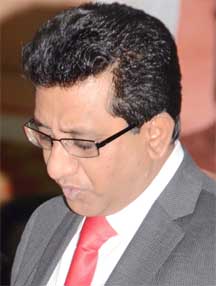
Speaking with this newspaper at the end of the meeting, PPP/C MP Gail Teixeira said, “The government has filed a Constitutional Motion in order to seek the court’s guidance on the interpretation of the Constitution in relation to the proportionality of the parties’ representation in the Parliament and then in bodies of the Parliament.”
She added that the government will await the ruling on the Constitutional Motion. “We informed the Speaker of that event. Secondly, we also informed the Speaker that efforts to reach consensus at the inter-parliamentary party dialogue were not successful in reaching any agreement other than what the AFC and APNU intransigently said that they would stick to, [that is to say] that for committees of no more than ten and no less than six, they wanted nine, with the government having four, APNU four and the AFC one,” Teixeira explained.
“We advised the Speaker formally in writing that efforts [to reach consensus] failed and that the government had no intention to pursue any further efforts to reach consensus on the size and composition of the parliamentary committees,” she said.
Teixeira, Presidential Adviser on Governance, said that the PPP/C went ahead and named their nominees to the committees in accordance with the Motion that APNU’s Amna Ally had proposed and which was voted for by the opposition majority on February 10, 2012. “We proceeded to name our members to those committees with the proviso that this would be dependent on the court ruling,” she said.
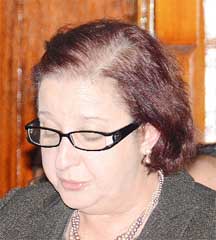
Later, Leader of the Opposition David Granger called the application a diversionary tactic by the PPP/C Government. “It is my view that the Motion is really a ruse,” he told Stabroek News, likening it to an interview that President Donald Ramotar gave last month in which he said the PPP/C had been robbed in the general elections.
“Since that time, the level of cooperation by the PPP/C has been less than expected,” he said, noting that the tripartite process has ground to a halt. Granger also insisted that the legislative branch of government is independent. “Mr. Nandlall has got it all wrong. It is the legislative branch that makes the law. We, the opposition, are the majority in Parliament and the courts cannot find to the contrary,” Granger said. He pointed out that the majority used its vote in Parliament in the interest of the voters. “We are not fooled neither are we frightened by the manoeuvres of the PPP/C,” he added.
Separate
Commenting on the possibility of the Judiciary deciding on or changing an outcome of a process determined by the Legislature, Speaker of the National Assembly Raphael Trotman said, “As far as I know, there are three separate branches of government.” He further said that Parliament should not pass laws to interfere with the Judiciary and the Judiciary should not try to tell Parliament how to conduct its procedures, and neither should the Executive.
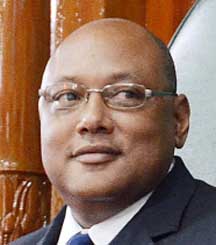
But he added that despite his reservations about the actions on the part of the government, the rule of law is paramount and it is preferable to await the ruling of the High Court on the legality of the proceedings filed.
Meanwhile, Trotman said he was pleased that the necessary maturity was displayed on both sides during yesterday’s Committee of Selection meeting. “They were able to name members of committees. On the last occasion, I sought to influence the parties in finding consensus through political dialogue. Some people frowned on the fact that I was doing so. I believe that as Speaker, I do have a duty to maintain harmony and that harmony should not just be within the confines of the parliamentary chamber but within the body politic. I will do whatever I can to aid that,” he said.
“I have no apologies for urging consensus at a dialogue level,” he added. “I did indicate that if that failed we would like to proceed and so on Saturday, I emailed both sides setting today’s meeting and at the commencement [Teixeira] indicated that the Government had moved to the High Court on a Constitutional Motion I believe ostensibly to seek a declaration or to have interpretation and consequent orders…I don’t know,” he added.
Amna Ally of APNU said that the meeting was cordial with no deadlocks. She said that all of the parties made their nominations to the 14 committees whose composition is mandated by the Committee of Selection. “APNU and AFC and the PPP nominated their representatives on all of the committees,” she said.
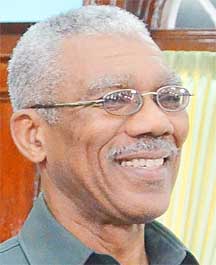
Speaking on the issue just after the meeting ended yesterday, AFC’s Khemraj Ramjattan said, “It would appear that the Attorney General filed a Constitutional Motion saying that what we did in Parliament to change the numbers of the Committee of Selection from 10 to 9 is unconstitutional. We will defend that. There was no interim order or injunctive order granted,” he said.
“We are going to go along in the committees [so that they function] and if the numbers change by Court Order [then we will see]. The Courts can’t now interfere with the internal arrangements and Standing Orders and our parliamentary branch of Government. The Legislative branch takes care of its own procedures and its naming and numbering and all of that. That’s not in any way unconstitutional,” he said. “We in the Parliament determine the meaning of proportionality, not a court of law. We have to deal with that. So I don’t understand what they are now trying to tell us that it is unconstitutional because it is not proportional,” Ramjattan added.
Proportionality
According to the Notice of Motion, in which Granger and Trotman are named as respondents, Nandlall is seeking a declaration that all standing committees and special select committees of the National Assembly of the 10th Parliament “are to be constituted in proportion to the number of seats which each political party was allocated in the said National Assembly based upon the results of the National and General Elections held on November 28th, 2011,” and in accordance in Articles 60 and 160 of the Constitution and the Elections Law (Amendment) Act.
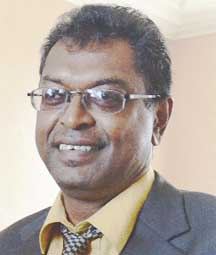
“The composition of the Committee of Selection is violative of the principle of proportionality as contemplated by the Constitution since with this configuration the PPP/C with 32 seats has the same representation in the committee with APNU which only secured 26 seats. Therefore the PPP/C has only 44.44 percent of the representation with 32 seats and APNU has the same 44.44 percent representation, but with only 26 seats, leading to a disproportionality of almost five seats,” Nandlall argued.
He is also seeking a declaration that the composition of the Committee of Selection done by elections – PPP, four; APNU, four and AFC, one – is a violation of the “principle of proportionality as contemplated by Articles 60 and 160 of the constitution and the provisions of the Elections Law (Amendment) Act No. 15 of 2000 and accordingly, unconstitutional, unlawful, null, void and of no effect.”
The AG is additionally asking the court for orders setting aside, revoking, cancelling or annulling the composition of the committee on the grounds that it was in breach of the Constitution and a breach of the provisions of the Elections Laws (Amendment) and further directing the respondents and their servants/agents to constitute all Standing Committees and Sectoral Committees and every other Committees of the 10th Parliament, whose composition are not expressly set out in the Constitution, with due regard to and in compliance with the principle of proportionality.
In his affidavit in support of the motion, Nandlall said that a large part of the work of the National Assembly is undertaken by the various Committees established by the National Assembly.
At the commencement of each National Assembly, the Committee of Selection; the Public Accounts Committee; the Constitutional Reform Committee; the Committee of Appointments; the Parliamentary Management Committee and the Parliamentary Oversight Committee on the Security Sector are to be established, Nandlall stated. He added that according to Standing Orders 80-94, it was detailed how all committees are to be constituted.
According to the manner of constitution of the Committee of Selection as laid down in the Standing Orders, he said, it consists of not less than six or more than ten members in addition to the Speaker, who serves as Chairperson nominated by the Assembly. Similarly, the Public Accounts Committee, the Constitution Reform Committee, and the Committee of Appointments, he added, consist of not less than six or more than ten members who are nominated by the Committee of Selection at the commencement of each session. The Parliamentary Management Committee, he said comprises ten members; five representing the government and five representing the opposition, nominated by the Committee of Selection. Further, he said that membership is being determined for the Parliamentary Oversight Committee on the Security Sector, while the four sectoral committees—on natural resources, economic services, foreign relations and social services— consist of seven members; four representing the government and three representing the opposition, to be nominated by the Committee of Selection.
Nandlall said that it must be noted that in both the Eighth and Ninth Parliament and all prior Parliaments, the Committee of Selection comprised ten members, excluding the Speaker who is the Chairperson. “In these prior Committees of Selection, the government had six members and the opposition had four. This composition was never questioned nor challenged,” he argued.
He noted that in the composition of committees, Standing Order 94, is of great significant as “every select committee shall be constituted as to ensure as far as possible, that the balance of parties in the Assembly is reflected in the Committee” and unless otherwise provided in the Standing Order or by Resolution of the Assembly, the Committee of Selection may determine the size of each Committee.
He said that Standing Order (1) was “clearly crafted” to capture the letter and spirit of the law, “in so far as they contemplate and provide the principle of proportionality and proportional representation.”
For now, the parties await the outcome of the matter before the committees could start their work, even as the talks on the budget seem doomed to an early burial given the silence from Government on these talks.




